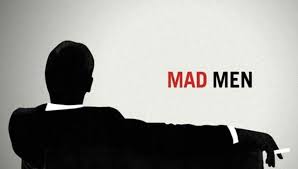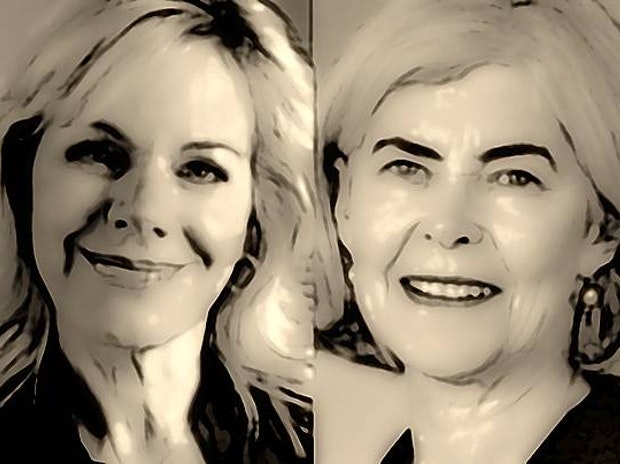From today through May 28, take our new Big Class: Stopping Harassment and Creating Cultures of Respect with Gretchen Carlson and Robin Hammeal-Urban for free.
Our culture has tended, up until recently, to think of serious sexual harassment as characterizing a bygone era. The television show Mad Men, for example, set in 1960s  advertising firms and including scenes with startlingly blatant sexual harassment, suggest that sexual harassment used to be a serious problem, but also creates a perception of cultural distance between the bad old days and today. If the #MeToo movement has demonstrated anything, however, it has shown that in many twenty-first century professional and social communities, we still accept as a fact of life that powerful people will coerce others into sex and degrade others based on gender.
advertising firms and including scenes with startlingly blatant sexual harassment, suggest that sexual harassment used to be a serious problem, but also creates a perception of cultural distance between the bad old days and today. If the #MeToo movement has demonstrated anything, however, it has shown that in many twenty-first century professional and social communities, we still accept as a fact of life that powerful people will coerce others into sex and degrade others based on gender.
A 2016 report by the Equal Employment Opportunity Commission on workplace harassment included the results of a random sample survey that found that 25% of female employees reported having been sexually harassed in the workplace. When the  term “sexual harassment” was not used in the question, but unwanted sexual advances by employers were described, 40% of female employees reported having experienced these behaviors. When the question described people’s being treated with hostility in relation to their gender (as opposed to experiencing unwanted sexual advances or sexual touching), that percentage went up to 60. This survey demonstrates, first, that sexual harassment in the American workplace is anything but dead, and second, that many women notice sexually inappropriate and gender-biased behavior in their workplaces but don’t define these behaviors to themselves as sexual harassment. The harassment is happening, but victims don’t always recognize it as such.
term “sexual harassment” was not used in the question, but unwanted sexual advances by employers were described, 40% of female employees reported having experienced these behaviors. When the question described people’s being treated with hostility in relation to their gender (as opposed to experiencing unwanted sexual advances or sexual touching), that percentage went up to 60. This survey demonstrates, first, that sexual harassment in the American workplace is anything but dead, and second, that many women notice sexually inappropriate and gender-biased behavior in their workplaces but don’t define these behaviors to themselves as sexual harassment. The harassment is happening, but victims don’t always recognize it as such.
Nor does harassment stop in the workplace. The sexual assault charges brought against numerous clergy members in recent years indicate that churches are no more immune to predatory sexual behavior than anywhere else. It is impossible to deny that sexual harassment remains a serious problem across the board in American culture.

In this class, two women who advocate against sexual harassment join together to show us how to resist it, particularly in our faith communities. In 2016, Gretchen Carlson, a former Fox News journalist, brought charges against Roger Ailes after having been dismissed from her job for refusing to have sex with him. Her choice eventually forced Ailes to resign from his position at Fox News (where several other women have spoken out about his having harassed them as well) and opened doors for other women to report their experiences with sexual harassment. Today, she focuses much of her energy on advocating for gender equality in the workplace.
 Robin Hammeal-Urban is Canon for Mission Integrity and Training for the Diocese of Connecticut. She is an attorney who specifically works to train faith communities on ways to build respectful interaction and resist sexual harassment. She also helps the church respond to situations involving sexual misconduct. She has written a book about rebuilding trust in faith communities in the wake of leadership misconduct and has many ideas about how communities of faith in particular can build respectful cultures.
Robin Hammeal-Urban is Canon for Mission Integrity and Training for the Diocese of Connecticut. She is an attorney who specifically works to train faith communities on ways to build respectful interaction and resist sexual harassment. She also helps the church respond to situations involving sexual misconduct. She has written a book about rebuilding trust in faith communities in the wake of leadership misconduct and has many ideas about how communities of faith in particular can build respectful cultures.
In this course, Gretchen and Robin will educate you about how to define sexual harassment, why it’s important to speak out about it (and why it can be so difficult to do so), ways in which churches and individuals can respond to harassment, and ways to build faith communities that encourage respect. We hope that their guidance helps each of you as we work together to create a culture that truly respects the dignity of every human being.
We hope that you will join students across the world in learning about how to resist sexual harassment. For a preview of the course, please click here.


 using our collective voice to demand change and to discuss ways by which we might enact change in our institutions and on a cultural level. In this class,
using our collective voice to demand change and to discuss ways by which we might enact change in our institutions and on a cultural level. In this class,